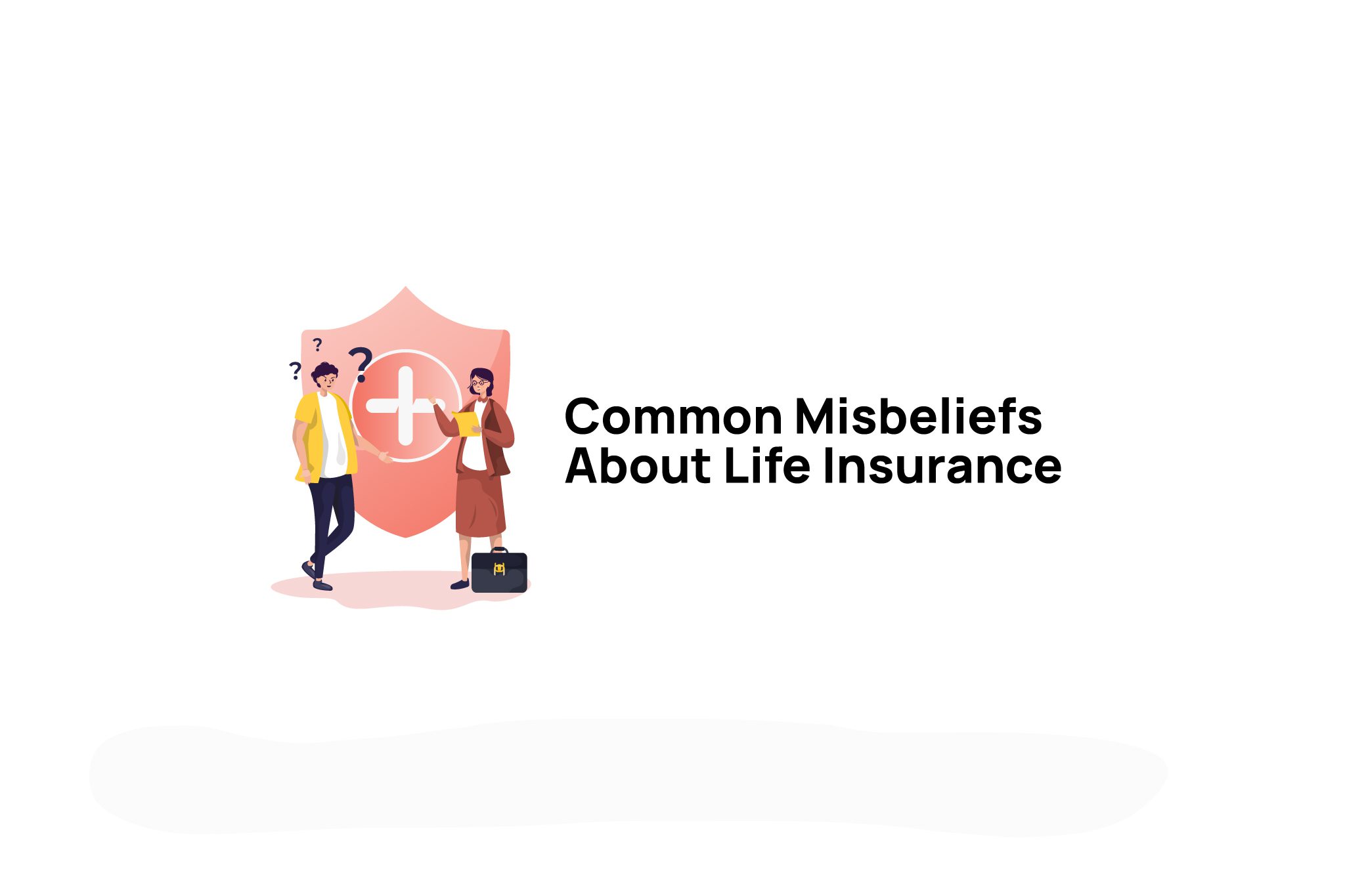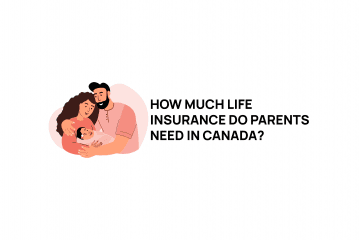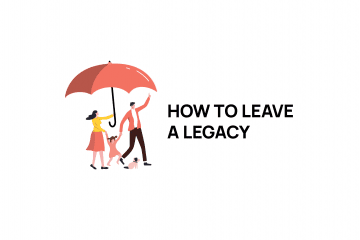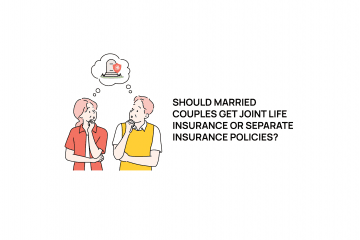Life insurance, on its surface, seems like a fairly straightforward idea. You buy a policy, pay the premiums, and when you die, the policy pays your named beneficiaries the death benefit amount. From a bird’s eye view, they really do work like that. But there are things that we’ve seen over the years that can surprise people about how their life insurance works. Let’s look at some common misbeliefs about life insurance.
In This Article:
- What happens with life insurance with a self-inflicted death
- What about Medically Assisted Death
- I have life insurance through my work
- How Mortgage Insurance Works
- Things other than your health can affect your premiums
- Life Insurance is expensive
- Conclusion
What happens with life insurance with a self-inflicted death
There are a few important time frames related to your life insurance policy. One such time window is the two-year period at the beginning of a new policy. One of the clauses during these two years is the suicide exemption. What this means is that during the first two years that a policy is in force, if you pass away and the cause of death is suicide, your policy will not pay the death benefit. Some companies may have a three-year exemption, but the end result remains the same. The benefit doesn’t pay out during the exempt period if that is the cause of death. Here’s what surprises people. After that exempt period is completed, the death benefit does pay out in full. Many people assume that a life insurance policy never pays if the death is from suicide. The reality is that the exempt period is needed to protect insurers from a situation where someone has decided to end their own life, but before that, they take out an insurance policy to give their beneficiaries a lump sum of money. This type of anti-selection is avoided with the presence of an exempt period. What the insurer is not trying to do is penalize someone who, many years after taking out a policy, dies from suicide. Think of someone who develops a severe mental illness 20 years after establishing a life insurance plan, resulting in a self-inflicted cause of death. That person wasn’t trying to ‘trick’ the insurer into a quick payout; they experienced an unexpected change in their mental health. In that type of situation, as long as the exempt period is passed, you are fully covered.
What about Medically Assisted Death
This is a newer instance with the changes in the laws allowing for medically assisted death in Canada. The main thing about this type of death is that to apply for medically assisted death in Canada; you need to be experiencing pain and suffering that are related to a current medical condition. This often negates the idea behind the waiting period for the suicide exemption because if you qualify for medically assisted death, you probably wouldn’t be able to purchase a new life insurance policy shortly before you pass away. Access to this service is aimed at people with chronic, terminal illnesses who have decided that they would like to stop the pain and suffering they are experiencing. In this case, the cause of death reported to the insurer is typically the underlying condition and the death benefit is paid in full to the beneficiaries.
Get a free quote
I have life insurance through my work
Awesome. If you are lucky enough to have an employer offering a group insurance plan that gives you life insurance as part of the package, that’s a great part of the total compensation package you receive for your work. Here’s the thing, though. You need to work there to have insurance. Most people don’t love the idea of working until the day they die; this creates an issue if you’re relying on that coverage for anything. If you retire or leave the job, the coverage is also lost. Also, with life insurance from a group insurance plan, in most cases, the death benefit amount will drop by 50% when you turn 65 and then disappear completely at either age 70 or 71 (depending on the insurer). This means that if you plan on working beyond those ages, you don’t have life insurance anymore. So relying solely on your employer for life insurance often results in people not having coverage when they actually die. And the idea of working until the day you die for the life insurance becomes a lot less appealing when you realize that to get the full amount of coverage that needs to be before you turn 65.
How Mortgage Insurance Works
If you’ve applied for a mortgage in Canada, you have inevitably been offered mortgage insurance as part of the application. The term insurance often comes up when discussing the monthly payments you will need to make. You will hear the word insurance included in the quote along the lines of ‘this is the principal portion, this is the interest portion, and this is the insurance premium.’ Knowing what insurance premium they are talking about is important, and it gets confusing because the term insured mortgage comes up in a few different ways. An insured mortgage could be a mortgage where the downpayment amount is less than 20% of the purchase price. The Canadian Mortgage and Housing Corporation (CMHC) insures these mortgages, and it is to help protect lenders against default. CMHC insurance for a mortgage with less than a 20% downpayment is required, and yes, if that’s the insurance premium they are talking about, you need to pay it. If, however, the insurance they are talking about is mortgage life insurance, that story changes. Mortgage life insurance is a life insurance policy that is attached to the mortgage debt. If you die, the balance of your mortgage is paid off. We must understand an important fact when we look at mortgage life insurance. If you die, your beneficiary doesn’t receive the money; it goes straight to the lender and pays them the full amount of the outstanding balance. It’s your lender’s way of making sure that if you die, they get their money. If you insure your life with an insurance company, your beneficiary receives a cheque to do with as they, please. If they want to pay off their mortgage, they can; if they want to take time off work to adjust to the loss, they can. No one tells them what to do with the money.

Things other than your health can affect your premiums
People are always surprised when they get into the portion of the life insurance application related to their ‘lifestyle .’Why would an insurer want to know about things outside your medical history? You need to remember that life insurance pays out when you die, not when you die due to a specified medical condition. This difference means that the insurer is curious about the things you like to do in daily life. Do you have a risky job (thoroughbred jockey, anyone)? Do you enjoy risky hobbies (Jumping out of a perfectly good plane, for example)? How’s your driving record (is your gas pedal foot a bit on the heavy side)? All these things will influence the decision of an insurance company when it comes to issuing a policy. The reason is that they all add to the risk associated with the policy. Accidents rank very high in Canada annually on the scale of causes of death; typically, they are only exceeded by heart disease, cancer, and respiratory disease. When you factor age into the data, the chance that a younger applicant dies from an accident is higher than the odds they pass away from an illness. That’s why the insurance company wants to know what you do with your time. They need to assess the chance that you are participating in a risky activity where the chances of a severe accident are increased.
Life Insurance is expensive
This is one of the most common misbeliefs about life insurance, and it tends to be the one that keeps people from applying for coverage in the first place. The reality is that there are many different types of life insurance, and term life coverage is quite affordable. If you require life insurance (i.e. someone who relies on you financially that would suffer if you died), then exploring the world of term insurance can give you reasonably priced coverage for the duration of the time that the need is in place. Think of a new parent as an example. They may look at what would happen financially to their family if they passed away with a newborn and see that the outcome could be devastating, but as your children grow up and become self-sufficient, then the need for coverage goes away. This is a perfect example of where a term insurance plan with a 20- or 25-year renewal (how long the premium is in place before it increases) can fill a need perfectly. Many people in good health are surprised by how affordable a term insurance plan is. The trick may come with thinking about what the cost of not getting the coverage is. If you were to pass away unexpectedly with or without life insurance which outcome would be better for your beneficiaries? If you look at the premium amount for a term insurance plan from that perspective, you will see that it really is a small investment in the peace of mind that it provides.

Conclusion: Common Misbeliefs About Life Insurance
Many years ago, a business owner that I dealt with and I were discussing his insurance plan. When it came time to make the decision, he told me that he was relying on my advice because it was my job to know how each type of insurance worked and what was the best recommendation for him. He didn’t want to know the intricacies of how the policies worked; he just wanted to make sure he had what he needed. Now you ask yourself, ‘What’s the point of that story?’. The point is that many of the common misbeliefs about life insurance are easy to understand if you take the time to ask someone experienced in the insurance industry to explain it to you. And they should explain it to you in a way you can understand it. No one expects you to be an expert on everything; asking the right questions to someone qualified to give you answers gives you the best information, and from there, you can make informed decisions based on facts. That’s the best outcome for any choice. Reach out to one our insurance experts today to get a quote.




